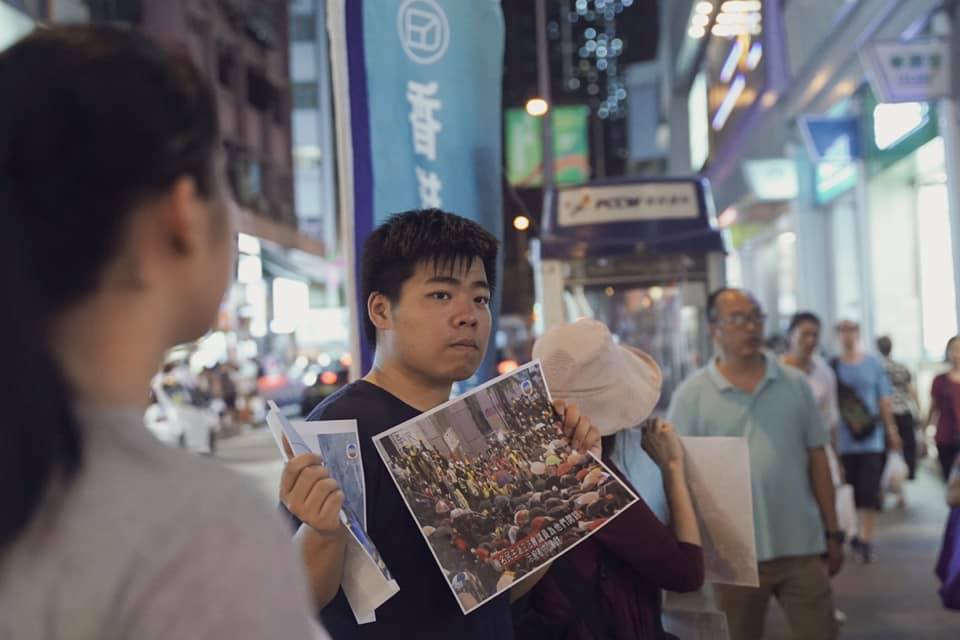A man and a woman were arrested by the national security police on Thursday morning for allegedly conspiring to collude with foreign forces and commit seditious acts.
The police said that the duo, both aged 29, were linked to the four people arrested earlier this month for allegedly supporting self-exiled democrats wanted by the national security police.

Multiple local media outlets, including Ming Pao and InMedia citing sources, reported that the two arrested were Lily Wong and Chan Kok-hin, former members of Demosisto, a disbanded pro-democracy political group.
National security police arrested a total of five people earlier this month, who were all ex-Demosisto members. They were granted bail and will have to report to the police in August.
The police accused the five of receiving funds from operating businesses, social media platforms, and mobile applications to support people who had left Hong Kong and were allegedly continuing to take part in activities endangering national security.

According to reports, the mobile application in question was Mee, an app that promoted businesses sympathetic to Hong Kong’s 2019 protests and unrest.
Their arrests came days after the police announced a HK$1 million reward for each of the eight self-exiled activists, including Nathan Law, who left Hong Kong in response to the enactment of the Beijing-imposed security law. Wong and Chan were arrested for allegedly funding Law, RTHK reported citing sources.
Other wanted activists included ex-lawmakers Ted Hui and Dennis Kwok; activists Anna Kwok, Elmer Yuen, Mung Siu-tat and Finn Lau; and solicitor Kevin Yam.
In June 2020, Beijing inserted national security legislation directly into Hong Kong’s mini-constitution – bypassing the local legislature – following a year of pro-democracy protests and unrest. It criminalised subversion, secession, collusion with foreign forces and terrorist acts, which were broadly defined to include disruption to transport and other infrastructure.

The move gave police sweeping new powers, alarming democrats, civil society groups and trade partners, as such laws have been used broadly to silence and punish dissidents in China. However, the authorities say it has restored stability and peace to the city.
The colonial-era sedition law, which is under the Crimes Ordinance, is separate from the sweeping security legislation. It outlaws incitement to violence, to disaffection and to other offences against the administration.
However, defendants charged under the colonial legislation also have to face the more stringent bail threshold as those prosecuted under the security law. Sedition cases are also handled by handpicked national security judges.
Support HKFP | Policies & Ethics | Error/typo? | Contact Us | Newsletter | Transparency & Annual Report | Apps
Help safeguard press freedom & keep HKFP free for all readers by supporting our team

LATEST FROM HKFP
HKFP has an impartial stance, transparent funding, and balanced coverage guided by an Ethics Code and Corrections Policy.
Support press freedom & help us surpass 1,000 monthly Patrons: 100% independent, governed by an ethics code & not-for-profit.










